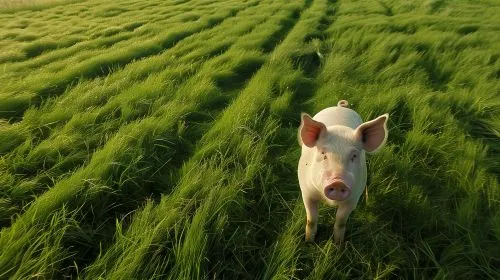778

Brussels, September 28, 2025 — In response to mounting pressure from farmers in several member states, the European Union is advancing reform proposals within the Common Agricultural Policy (CAP) aimed at reducing bureaucracy, supporting small farms, and lowering the frequency of on-site inspections.
These measures are included in the package known as Omnibus III, recently adopted by the AGRI Committee of the European Parliament and backed by the position taken in the EU Council, which is set to enter final negotiations with the Parliament and the European Commission.
Among the key elements are: increasing the lump-sum payment for small farmers up to a ceiling of €5,000 per year, introducing exceptional support of up to €75,000 for investments and modernization in small farms, and reducing the frequency of on-site checks to a single inspection per year. At the same time, environmental standards (GAEC) would become more flexible, while organic-certified farms could be automatically deemed compliant with certain requirements. In addition, the threshold for accessing insurance schemes could be lowered from 20% to 15%, while amendments to CAP strategic plans would be approved more quickly, within two months.
The EU Council announced its support for these principles, estimating that the simplifications could generate significant savings — up to €1.6 billion annually for farmers and more than €200 million for national administrations.
The proposed reforms bring clear advantages. Farmers could be relieved of part of their administrative burden, small farms would benefit from fairer support, and member states would be able to respond more quickly to unforeseen events such as drought or animal disease outbreaks. Moreover, lowering the threshold for insurance schemes would expand access to risk management tools.
However, risks have also been flagged. Critics warn that reducing inspections and increasing flexibility in environmental rules could weaken the protection of agricultural ecosystems. Implementation of the measures will depend on the resources and administrative capacity of each member state, which may lead to uneven application. Furthermore, increasing financial support for small farms could generate additional budgetary pressures and spark debates over fairness toward larger holdings. Finally, the text has not yet been adopted and will undergo negotiations between the Parliament, the Commission, and the Council.
The next steps are the plenary vote in the European Parliament, scheduled for October 6–9, 2025, trilogue negotiations among the EU institutions, and, subsequently, adjustments to CAP strategic plans in each member state. The application of measures will be gradual, depending on final decisions at the EU level and on how each member state transposes the new rules into national legislation.
(Photo: Freepik)





